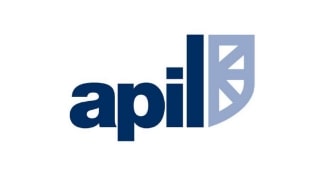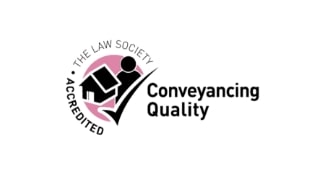Price Guide: Claims For Unfair And Wrongful Dismissal
Our pricing range for bringing and defending claims for unfair or wrongful dismissal
Simple case: £9,000 – £12,500 (excluding VAT at 20%)
Medium complexity case: £12,500 – £20,500 (excluding VAT at 20%)
High complexity case: £20,500 – £35,000 (excluding VAT at 20%)
Hourly rates
VAT will be charged at the 20% on all hourly rates.
| Qualification | Hourly rate | |
| T Barbeary | Head of Department / Solicitor | £275 |
Please note that Trainee Solicitors, Paralegals and Legal Assistants will assist on matters
Factors that could make a case more complex
• If it is necessary to make or defend applications to amend claims or to provide further information about an existing claim
• Defending claims that are brought by litigants in person
• Making or defending a costs application
• Complex preliminary issues such as whether the claimant is disabled (if this is not agreed by the parties)
• The number of witnesses and documents
• If it is an automatic unfair dismissal claim e.g. if you are dismissed after blowing the whistle on your employer
• Allegations of discrimination which are linked to the dismissal
Disbursements
Disbursements are costs related to your matter that are payable to third parties, such as court fees and expert fees. You do not have to pay a fee to bring a claim in the Employment Tribunal. We handle the payment of the disbursements on your behalf to ensure a smoother process.
If a Barrister (Counsel) is instructed to represent you at the Tribunal Hearing, fees are estimated at £2,750 – £4,750 for the initial brief fee and between £1,500 – £2,750 per day plus VAT (depending on experience of the advocate) for attending a Tribunal Hearing (including preparation). This is based on a straightforward unfair dismissal claim with a hearing lasting two days. Counsel’s fees would be considerably more for hearings of more than two days in complex cases.
Key stages
The estimated fees set out above cover all of the work in relation to the following key stages of a claim:
• Taking your initial instructions, reviewing the papers and advising you on merits and likely compensation (this is likely to be revisited throughout the matter and subject to change)
• Entering into pre-claim conciliation where this is mandatory to explore whether a settlement can be reached
• Preparing the claim or response
• Reviewing and advising on the claim or response from other party
• Exploring settlement and negotiating settlement throughout the process
• Preparing or considering a schedule of loss
• Preparing for (and attending) a Preliminary Hearing for Case Management
• Exchanging documents with the other party and agreeing a bundle of documents
• Taking witness statements, drafting statements and agreeing their content with witnesses
• Preparing bundle of documents
• Reviewing and advising on the other party’s witness statements
• Agreeing a list of issues, a chronology and/or cast list
• Preparation and attendance at Final Hearing, including instructions to Counsel
The stages set out above are an indication and if some of stages above are not required, the fee will be reduced, subject to any other factors that may increase the fee such as protracted negotiations/communications with you and/or the other party, or complicated preliminary issues that arise after the initial instruction. You may wish to handle the claim yourself and only have our advice in relation to some of the stages. This can also be arranged on your individual needs.
An important consideration is that, generally, legal fees are not recoverable from the losing party in the Employment Tribunal. While there are occasions where costs are awarded, the starting point must be that you will bear the legal costs of bringing or defending a claim in the Employment Tribunal, win or lose.
How long will my matter take?
The time that it takes from taking your initial instructions to the final resolution of your matter depends largely on the stage at which your case is resolved. If a settlement is reached during pre-claim conciliation through ACAS, your case is likely to take 3-6 weeks. If your claim proceeds to a Final Hearing, your case is likely to take 25 – 52 weeks depending on the factors involved. This is just an estimate and we will of course be able to give you a more accurate timescale once we have more information and as the matter progresses. You should note that the current backlog in the Tribunals has caused significant delays and the average time for the matter to conclude is taking twice that quoted, with cases frequently taking in excess of two years.
Funding options
We offer a number of funding options depending on the circumstances of each particular case and the level of assistance required. We can usually offer fixed fees for certain stages of work and will try to do this where possible. In some cases, charges based on the traditional hourly rates are preferable, particularly where you wish to deal with the claim and require only ad-hoc assistance throughout the process or where it is not possible to estimate the time required.
Where appropriate, if you are an employee bringing a claim, we may be able to enter into a damages-based agreement with you. If requested, we would carry out a risk assessment to determine suitability for this type of funding arrangement once we have undertaken the initial review and provided advice on the merits of the claim. Under this arrangement, you do not pay our fees if you lose, but you pay us a percentage of the compensation you are awarded if you are successful. Under such an arrangement, you would be liable for any disbursements or expenses incurred on your behalf, win or lose.
It is important that you check any insurance policies you have, to see whether you have any legal expenses cover for employment disputes. Many clients do not realise that they have such cover as legal expenses insurance can sometimes be included automatically as an “extra” when taking out household buildings, contents and motoring insurance.
Related Articles linked to Employees…
Government launches consultation to mitigate the... read more
Tags: Employees/Employment
The Department for Work & Pensions... read more
Tags: paternity pay/employment law/shared parental pay/parental bereavement leave/adoption pay/statutory sick pay/national living wage/department for work and pensions/national minimum wage/Employees/Employment













































